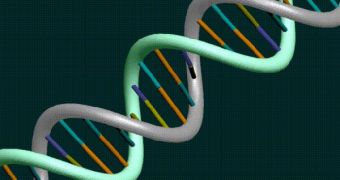Experts from the Institute of Bioengineering and Nanotechnology (IBN) in Singapore have recently developed an ultra-sensitive array of electronic sensors, which are efficient enough to identify strands of DNA with relative ease, and over shorter periods of time than existing technologies. The new, cost-effective method is detailed in a paper published in a recent issue of the scientific Journal of the American Chemical Society. The device, called the Nanogap Sensor Array, has also shown significant abilities in detecting trace amounts of genetic materials, its constructors say.
“By saving time and lowering expenses, our newly developed Nanogap Sensor Array offers a scalable and viable alternative for DNA testing,” IBN group leader Zhiqiang Gao, PhD, explains. The institution is the first bioengineering and nanotechnology research facility in the world. The new biosensor works by essentially converting the presence of DNA strands and traces into electrical signals. The way this is achieved is by compressing the genetic material between two different surfaces, and assessing the differences between them, in terms of electricity.
“The novel vertical nanostructure design and two different surfaces of the sensor allow ultra-sensitive detection of DNA. This sensitivity is best-in-class among electrical DNA biosensors. The design of the sensor also took into consideration the feasibility of mass production in a cost-effective way for expanded usage,” Gao adds.
“This new biosensor holds significant promise to speed up on-going efforts in the detection and diagnosis of debilitating diseases such as cancer, cardiovascular problems and infectious viruses. We aim to make healthcare accessible to the masses with early disease diagnosis as the critical driving force behind the research we undertake here at IBN,” IBN Executive Director Jackie Y. Ying, PhD, adds. The IBN is one of the main research institutes of Singapore's Agency for Science, Technology and Research (A*STAR).
The new method holds much promise for effective use in case of emergencies, such as disease outbreaks, as it acts a lot faster than established techniques, such as the polymerase chain reaction (PCR), which also require a lot of time and effort, and are very expensive to conduct.

 14 DAY TRIAL //
14 DAY TRIAL //